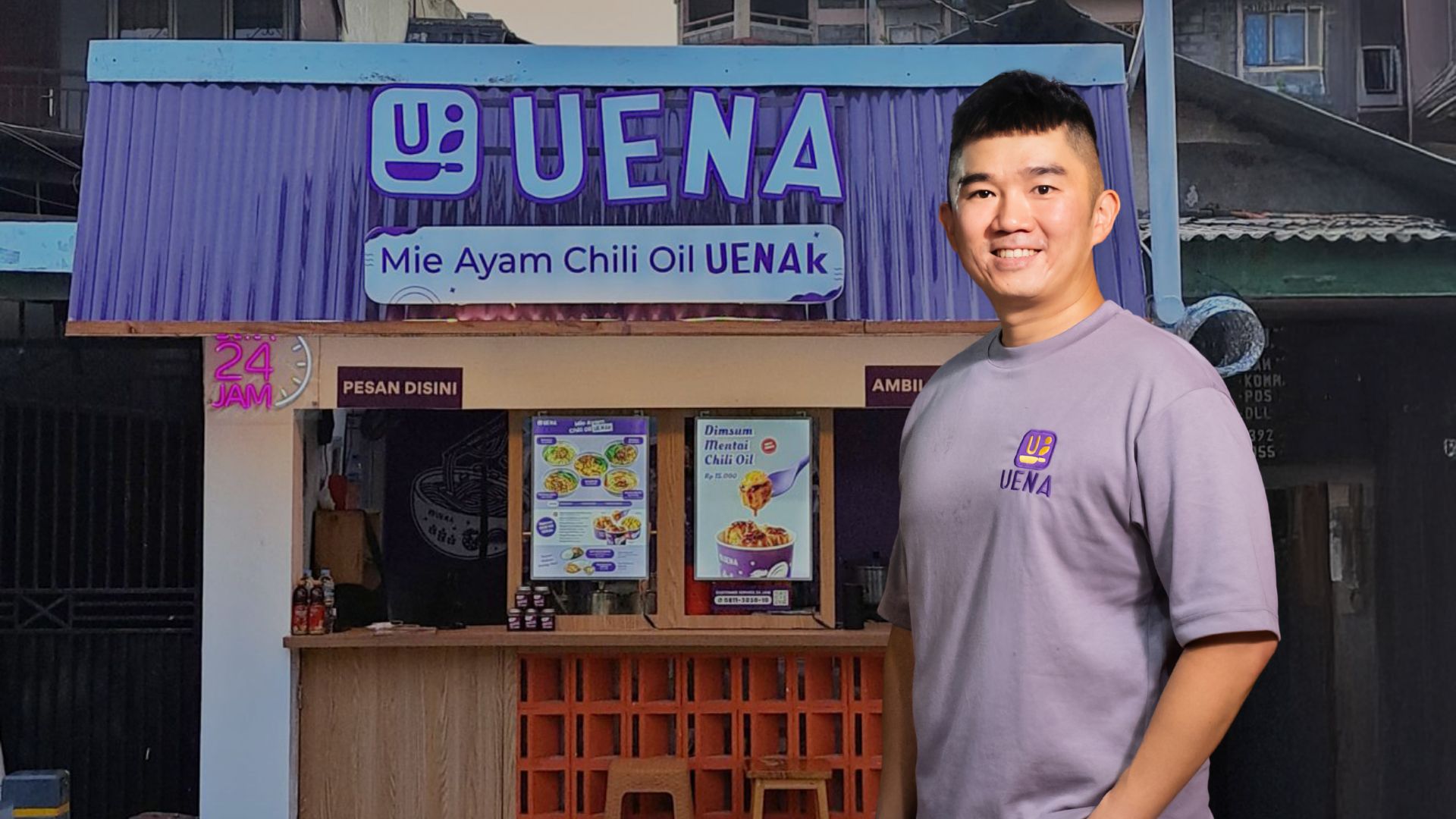The East Ventures – Digital Competitiveness Index (EV-DCI) aims to map the development of digital pillars and sectors that build the digital economy in all regions across Indonesia.

East Ventures – Digital Competitiveness Index 2022
Towards Indonesia’s Digital Golden Era

More even distribution
The digital competitiveness has been more evenly distributed across provinces, as the median score of EV-DCI 2022 increases to 35.2.

Increasing digital literacy
Each region has been actively contributing to the growth of digital literacy, as seen on the rise of infrastructure development, digital training, and transformation of businesses

Flourishing businesses
Digital roles have been further optimized to enhance the regional economy. More businesses are advancing during the pandemic, accelerated by technology.

Government support is crucial
Both central and regional government support are pivotal in accelerating digital adoption, through holding educational programs and creating quality digital talents.

How Indonesia moves forward
On the path to achieving Indonesia’s digital golden era, we identified the key building blocks which are enabled and accelerated by digital technology innovations.
The building blocks of digital economy

ICT
Information and Communication Technology
The foundation in establishing a digital environment that caters and supports Indonesia to strengthen its digital economy.

Advancing the digital economy
The ICT sector has been one of the main propellers of Indonesia’s economic recovery, being among the fastest-growing sectors in terms of real GRDP, and it is predicted to grow.

The need to invest in ICT
Due to the high digital adoption, the ICT sector has grown to serve the demand. Based on the EV-DCI 2022 survey, almost 80% of Indonesian startups and corporations have put investments in ICT as high priority.
Related Portfolio
Warung Pintar
Warung Pintar is a micro retail technology company that enables digitalization for the grassroots population to improve the community’s livelihood and promote digital literacy for warung owners.

“Among the “Making Indonesia 4.0” implementation agenda items related to digital are building a national digital infrastructure, establishing an innovation ecosystem, and implementing technology investment incentives. We also issued regulations regarding assessing the company’s level of readiness to transform towards industry 4.0.”
Agus Gumiwang Kartasasmita

E-commerce
E-commerce has experienced a tremendous growth as more new consumers started to shop online. It is now ready to catalyze digital economy growth.

Continuing the growth
Some keys to make e-commerce business more sustainable: by improving the inclusion of the MSMEs as well as the supports and efforts from government to improve digital inclusions, especially MSMEs.

The untapped potential
Indonesia’s B2B e-commerce is still underdeveloped and has more room to grow. The market share of Indonesia’s B2B e-commerce is only 27% of the total e-commerce market. The figure is tiny compared to the neighboring countries. (Reogma in 2020).
Related Portfolio
Sociolla
Sociolla, Indonesia’s leading beauty and personal care e-commerce business, has experienced a 50% increase in online transactions amid the pandemic. The pandemic has accelerated the shift from offline to online as people in Indonesia are becoming more reliant on the use of technologies to meet their daily necessities.


SIRCLO
Indonesia’s leading e-commerce technology company empowering businesses to sell online. Its one stop solution, includes template-based online store builder and technology-driven channel management service.

“The number of MSMEs that have gone digital has reached 16.4 million as of January 2022, a 105% increase from the pre-pandemic level of 8 million.”
Teten Masduki

Logistics
Indonesia’s growth in the logistics sector is projected to continue accelerating supported by the tremendous growth of the digital industry.

A promising sector
Since the start of the pandemic in March 2020, the logistics sector recorded a GRDP growth of 25.1% in Q1 2021, and another flourishing growth of 5.0% in Q4 2021.

Changing consumer-behavior
The pandemic has shifted consumer behavior as many flocked online to buy daily necessities with the implementation of mobility restrictions.
Related Portfolio
Waresix
Digital logistics platforms such as Waresix aims to connect thousands of islands and optimize infrastructure development across the archipelago, as both digital and physical infrastructure need to synergize.


“In the logistics ecosystem, there are many truck owners, truck drivers, and transporters who provide deliveries and they are heroes to the economy. We want to enhance the living standard of the drivers by providing access to digital infrastructure, insurance, and a variety of other services to improve the ecosystem of our transporters.”
Andree Susanto

Health
HealthTech startups have been facilitating the healthcare digital transformation by introducing new solutions to enhance the quality of healthcare services.

Lucrative investment opportunity
Due to the pandemic crisis, there is an increased awareness and urgency to reform the healthcare systems to create resiliency. Digital health market size in Indonesia is projected to grow rapidly.

Healthcare reimagined
Indonesia’s digital health ecosystem poses promising potential as many players provide integrated services beyond telemedicine, but also other sectors, system improvement, and more.
Related Portfolio
Nalagenetics
Nalagenetics has been actively contributing to the COVID-19 countermeasures by creating test-kits and collaborating with local NGO to launch COVID-19 related app, namely the COVID-19 Likelihood Meter 2.0.


Bicarakan.id, Riliv
Mental health tech startups like Bicarakan.id and Riliv provide online consultations with psychologists and therapists alike – this has not only helped break the stigma of mental health in the country, but also aid those who were impacted by the pandemic.

“By standardizing health data and creating several platforms, be it for medicine, vaccination, hospitals, labs, we hope these startups can grow creatively by using these platforms. My message for startups is to focus not only on the health technology information aspect but also on health biotechnology.”
Budi G. Sadikin

Education
Education plays an important role to support skills and talents needed for the growth of business and the economy.

A potential market
The population consists of 25% of school ages and 69% productive ages. It shows a vast market for the edutech sector, both K1-K12 and open online courses.

Improving inclusivity
Collaboration between multiple stakeholders, including education institutions, industries, edutech startups, research institutions and the government need to be encouraged. One of the examples is by utilizing massive open online courses (MOOC) to improve inclusivity in education and upskilling.
Related Portfolio
Ruangguru
Ruangguru, the largest EduTech company in Southeast Asia, recorded a 46% increase in its number of users to reach 22 million users in 2020 in Indonesia. The startup has introduced many initiatives, including access for teachers to 250 free training modules, which were accessed by over 200,000 teachers in 2020.


“The development of the digital industry has changed the need for workforces. Therefore, we need a palpable breakthrough. We initiated two programs. Baparekraf Developer Day, an event that aims to upskilling app developers’ technical capacity. Baparekraf Digital Talent refers to the Upskilling Program for Creative Digital Talents as a government initiative to develop and increase the capacity of creative economy players.”
Sandiaga Salahuddin Uno

Tourism
The COVID-19 pandemic introduced a completely new business landscape, bringing the tourism industry into a megashift based on the change in consumer behavior.

The need to be agile
Tourism is an important sector that plays a critical role in Indonesia’s economic growth and job creation. However, it became most affected by the COVID-19 pandemic as demands were declining.

Reviving travels
The presence of online travel agencies (OTA) to increase promotion and engagement to domestic and foreign tourists has shown its significant contribution. Travel intermediaries recorded growth of 30% or IDR 59,878 billion in 2021 sales, while OTA sales increased by 53% or IDR 83,674 billion.
Related Portfolio
Traveloka
Traveloka’s resilience has taken them through a megashift in the industry. The firm has acted timely and fostered innovations that contribute to accelerating the digital economy.


“One of the business strategies prepared by Traveloka, before the economy fully recovered is that Traveloka will continue to innovate and collaborate to expand our products and services, in line with Traveloka’s commitment as a lifestyle superapp to meet the lifestyle needs and aspirations of people in Southeast Asia.”
Caesar Indra

Financial Technology
Diversification of digital financial services has accelerated the financial inclusion and access evenly across archipelago.

Fintech industry has grown tremendously
Indonesia was ranked second highest country, with 26% of the total fintech investment in ASEAN (Fintech in the ASEAN 2021 report by UOB, PwC Singapore, and SFA).

Payments
E-money transactions increased 59% from IDR 22 trillion in December 2020 to IDR 35.1 trillion, according to Bank Indonesia data.

Peer-to-peer (P2P) lending
P2P lending grew during the pandemic. The number of borrower accounts increased by 287% to reach 71.8 million accounts in 2019-2021. Total loan disbursement grew from 42.5% to 63.2% in January-November 2021, based on Indonesia Financial Services Authority (OJK)’s data.

Productive loans propotion
The proportion of productive loans to total loan disbursement grew from 42.5% to 63.2% in January-November 2021. It can be associated with the growing need for financing to develop business activities.

Wealth management
The utilization of wealth management tech rises as people look to increase their income. The number of capital market investors increased ~ 93% and mutual fund investors increased ~115% in 2021 (Indonesia Central Securities Depository (KSEI).
Related Portfolio
Xendit
Xendit is an Indonesian fintech company that provides payment infrastructure for Indonesia. Xendit processes payments, helps marketplaces simplify payments, sends payments and loans, detects fraud and helps businesses grow exponentially. Xendit serves by providing world-class APIs and dashboard interfaces that make the process easy.


Bibit
Bibit, an investment platform that helps the investors with its Robo Advisor technology, to suggest a mutual fund portfolio that best fits the user’s risk profile, making investing hassle-free. It also provides investors with a small starting investment amount of IDR 10,000 (personal) and IDR 100,000 (with robo-advisor) for mutual funds.

“We have seen MSMEs, merchants, and startups who used to think very traditional about forms of payment, including the methods and integration. Today, it has changed, making it easier to build a business.”
Moses Lo

ESG
Environmental, Social and Governance
The development principles to drive the sustainability of the digital economy.

Why ESG implementation?
Two key factors led Indonesia to speed up its ESG implementation: increased awareness among Indonesia’s consumers about the importance of ESG and growing global stakeholders’ pressure to find solutions to sustainability challenges.

Accelerating ESG implementation
There is a positive correlation between digital adoption and achieving ESG targets, and needs to expedite more companies to start incorporating ESG principles in their strategies.
Related Portfolio
Xurya
Xurya, a renewable energy startup, focuses on Rooftop Solar Power Plant rental in Indonesia. The rental method supports the companies for gaining clean energy and saves their costs.


“Sustainability was our principle, and digital technology was our tool to help empower people and generate profits—not just for us, but to improve coastal economies.”
Utari Octavianty
Download the EV-DCI 2022 report to see the full ranking
See the development of digital competitiveness pillars and sectors that contribute in building the digital economy across all regions of Indonesia.
Digital Economy in the Perspective
Luhut Binsar Pandjaitan
Coordinating Minister for Maritime Affairs and Investment
Airlangga Hartarto
Coordinating Ministry fo Economic Affairs
Erick Thohir
Minister of State-Owned Enterprises
Arsjad Rasjid
Head of KADIN (Indonesian Chambers of Commerce and Industry)
Andre Soelistyo
CEO of GoTo Group & GoTo Financial
Download the EV-DCI 2022 report to see the full ranking
See the development of digital competitiveness pillars and sectors that contribute in building the digital economy across all regions of Indonesia.













